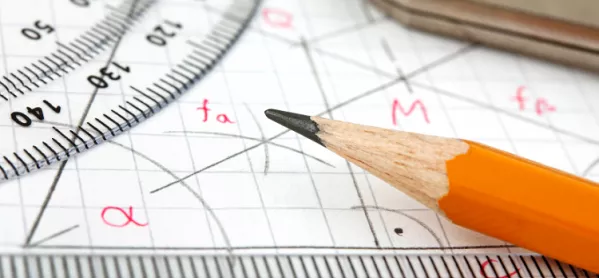All primary teachers should have a post-GCSE maths qualification, experts say

All primary school teachers should have a post-GCSE qualification in maths, such as an AS- or A-level or the new core maths qualification, an expert group has said.
In a report published today, the Advisory Committee on Mathematics Education (ACME) says the current requirement that primary teachers should have at least a C-grade maths GCSE and pass a numeracy test is a “very low threshold given that every primary teacher is a teacher of mathematics”.
It also warns that even “dramatic increases” in the recruitment of maths teachers will not be enough to solve the teacher shortage in the subject.
The report, Beginning Teaching: best in class?, says that trainee primary teachers in other countries have higher-level maths qualifications than those in England. Even though the new maths GCSE will be more demanding, it says, a grade 5 in the new test remains “arguably a relatively low threshold for entry”.
“ACME would prefer to see the requirement for mathematics qualifications increased over time,” it reads. “This is needed if England is to compete with other countries.”
Robert Barbour, chair of ACME’s working group on initial teacher education and one of the report’s authors, told TES he was not calling for existing primary teachers to retrain. Instead, he said, new teachers entering the profession over the next decade should have higher-level qualifications.
Mr Barbour acknowledged that a requirement for higher-level qualifications could worsen the teacher supply problem.
“For that reason, we’re saying that this can’t be done tomorrow but should be done in a planned way over the long term,” he said. “This isn’t something we’re saying could be done even in a couple of years.”
ACME has previously called for maths education to be compulsory for all pupils until the age of 18. Mr Barbour said this would be one way to ensure all primary teachers had higher-level qualifications, but that other routes such as encouraging take-up of the core maths qualification could also work. Core maths is a new post-GCSE exam that covers the practical application of the subject.
The report also calls for teacher shortages to be eased through a greater emphasis on professional development and the retention of staff, warning that many maths teachers leave the profession within three years of qualifying.
“Even dramatic increases in the recruitment of teachers of mathematics cannot wholly solve the problem of teacher supply,” the report warns, adding that there are “concerns” about maths teachers’ access to subject-specific professional development.
It highlights what it describes as a “dearth of knowledge” about why teachers leave the profession, calling for more research in this area.
ACME, which was set up by the Royal Society and the Joint Mathematical Council, warns that there are no “clear lines of responsibility and accountability” for the provision of initial teacher education.
Responsibilities are shared between “a range of actors” including the Department for Education, the National College for Teaching and Leadership, Ofsted and training providers, it says, adding that “further consideration needs to be given about who leads on the ITE strategy”.
The group also uses its report to raise concerns about maths being taught by underqualified teachers. It says an estimated 5,410 extra specialist teachers are needed in secondary schools to teach maths lessons that are now being taught by those without an A-level in the subject.
A spokeswoman for the Department for Education said: “The number and quality of teachers in England’s schools is at a record high, and latest figures show that we have recruited more maths trainees for 2015-16 than in the previous year.
“We have removed the cap for schools and providers on training allocations for maths, increased the bursaries and scholarships available for postgraduate ITT recruitment in maths - so that trainees with at least at 2:2 will receive £25,000 - and increased the number of salaried School Direct training places to encourage more career changers to train as teachers.
“We have also pledged up to £67 million to improve the skills of 15,000 existing non-specialist teachers and to recruit an additional 2,500 specialist maths and physics teachers over this Parliament.”
Want to keep up with the latest education news and opinion? Follow TES on Twitter and like TES on Facebook
Keep reading for just £1 per month
You've reached your limit of free articles this month. Subscribe for £1 per month for three months and get:
- Unlimited access to all Tes magazine content
- Exclusive subscriber-only stories
- Award-winning email newsletters



